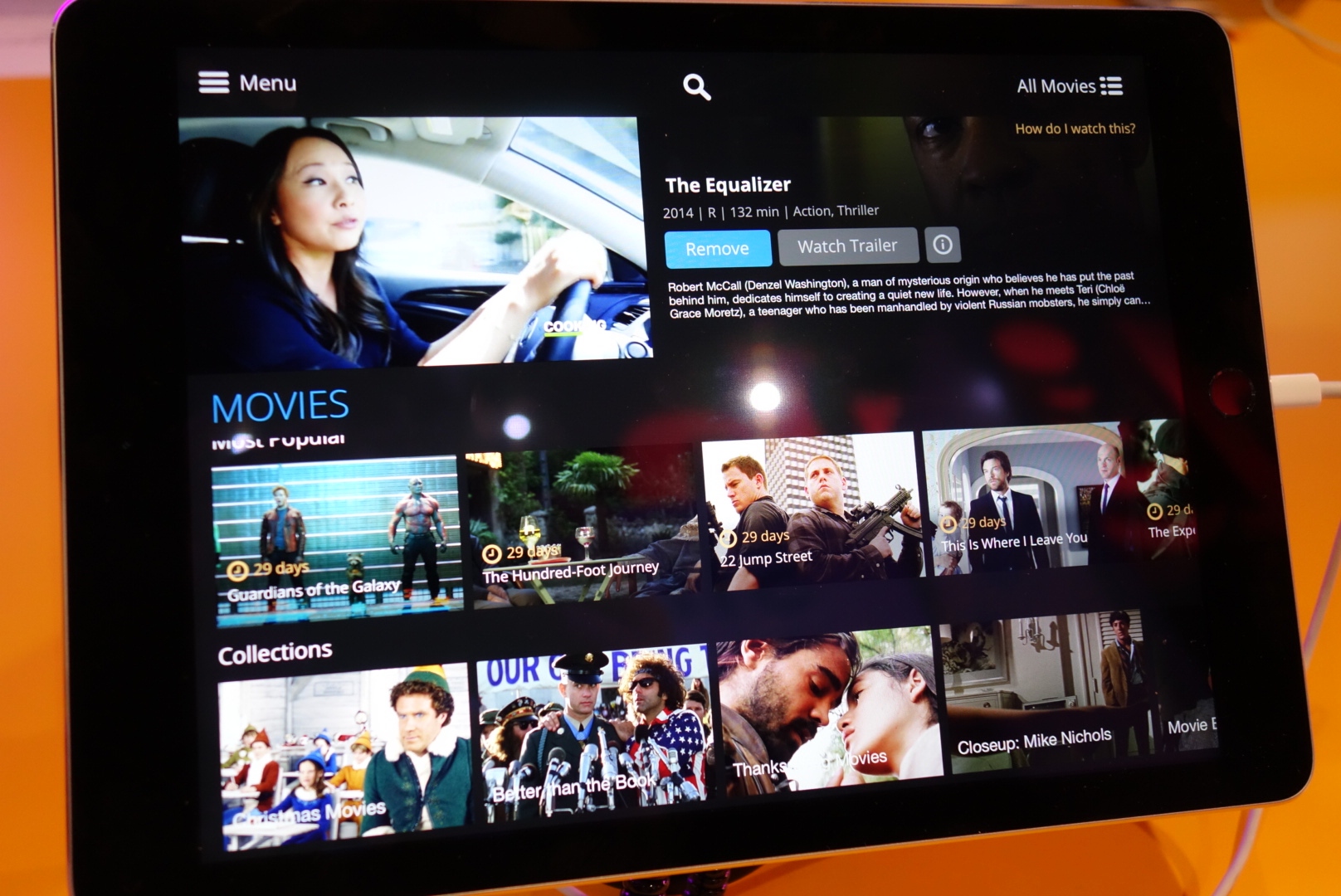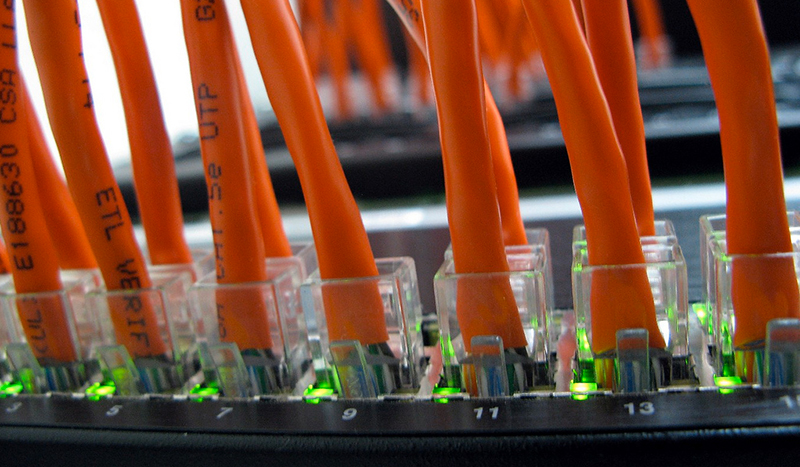Later this month, Dish will finally launch its much-awaited Sling TV streaming service that gives subscribers live online access to a dozen cable channels. And even though Sling has yet to go live, it’s already being factored into the pending mega-merger between Comcast and Time Warner Cable. [More]
paid peering
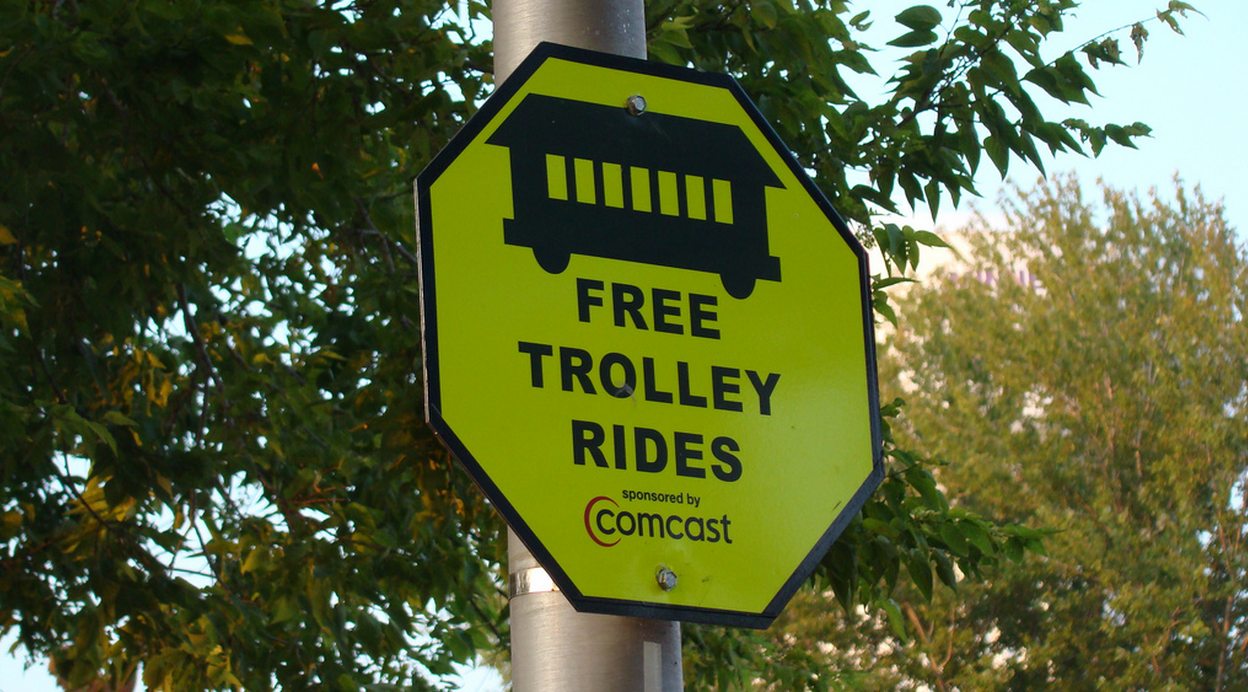
Senator Asks Comcast To Stick With Net Neutrality Beyond Its Legal Obligation
While its counterparts (we can’t call them competition, since that doesn’t exist) at other cable and Internet service providers have been drooling over proposed “net neutrality” rules that would allow ISPs to charge content companies for “fast lane” access to end-users, Comcast has consistently maintained that it is the only ISP to hold to the since-gutted 2010 version of neutrality (without mentioning that it’s legally obliged to follow those rules for a few more years). Now the Chairman of the Senate Judiciary Committee is asking Comcast to stick to those rules even after it no longer has to. [More]
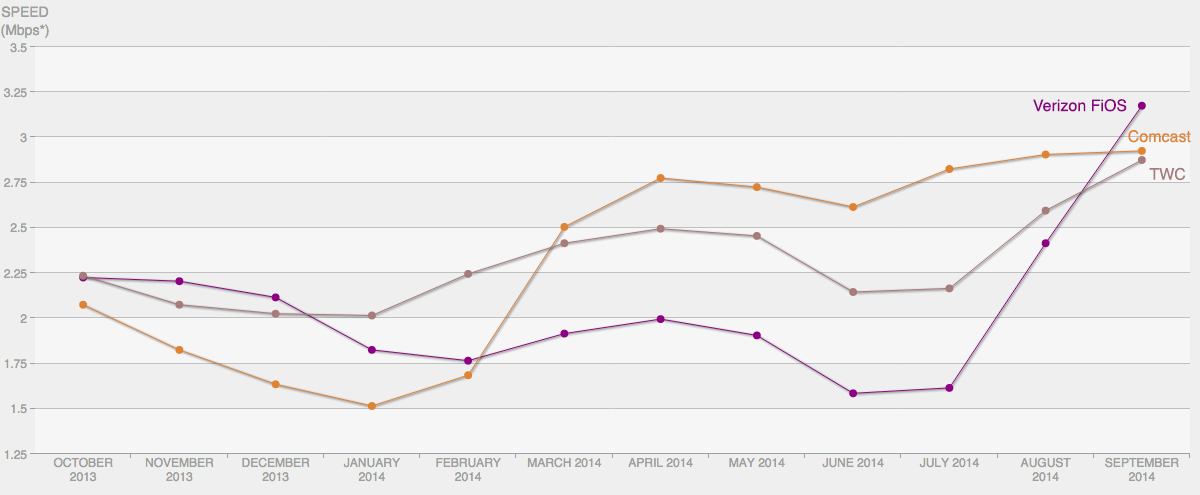
Netflix-Verizon Connection Agreement Finally Pays Off: FiOS Users Seeing Fastest Streaming Speeds
Netflix and Verizon have done a lot of very public verbal poo-flinging at each other this year over the abysmal connection speeds FiOS customers have had when trying to stream video from Netflix. Last mongh, FiOS customers finally started to see some relief (and some smoothly playing TV). It looks like the paid interconnection agreement between the two, though, has finally led to some cooperation and is bearing fruit, as Verizon FiOS customers are now seeing faster average Netflix streaming speeds than from any other large ISP in the country. [More]
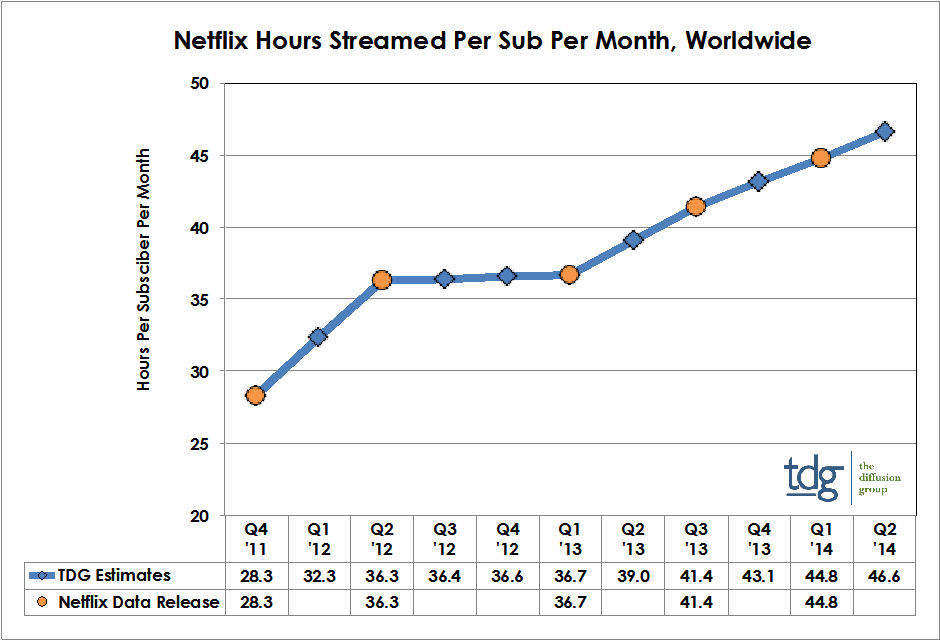
You Are Now Watching 93 Minutes Of Netflix A Day, You Lazy Bum
Cable companies hate Netflix. They pretend it’s because the streaming video service puts up a fuss about having to pay a toll just to be carried that last mile of the Internet to customers’ homes. But really, as new data shows, it’s because people are now spending an awful lot of time watching Netflix instead of watching TV. [More]

Netflix CEO Asks: Why Aren’t Cable Companies Paying Us?
For years, as cable companies and other Internet Service Providers have tried to round up support for their desire to charge a toll to bandwidth-heavy content providers like Netflix, they have repeatedly said that they deserve to be paid for carrying all that data to subscribers… even though they are already being paid by their own customers, and even though they are only carrying that content for a small fraction of its journey. Now the CEO of Netflix wants to know why that argument doesn’t swing both ways? [More]
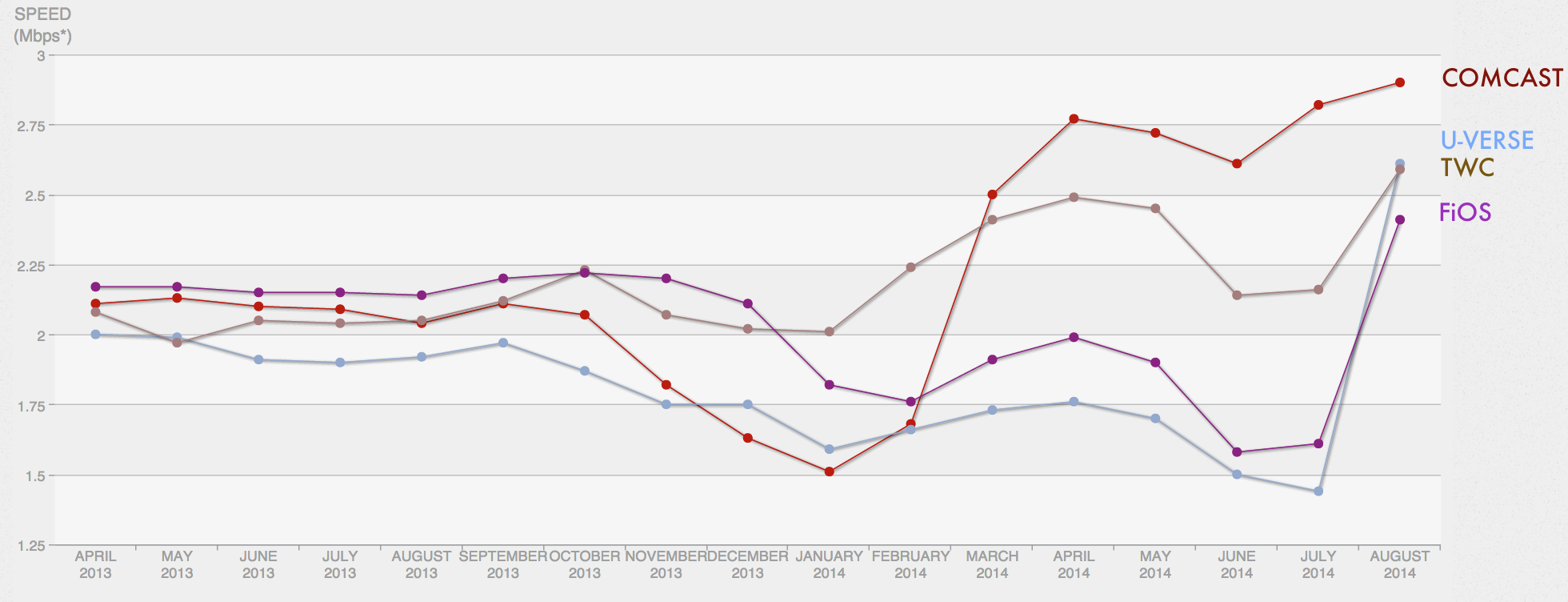
Netflix Speeds Finally Rebound For FiOS, U-Verse Customers
For years, Verizon has bragged about the fast data speeds available to subscribers of its FiOS broadband service. Meanwhile, the company was allowing Netflix streams to bottleneck, resulting in real downstream speeds that were slower than some DSL providers. And even months after Netflix agreed to pay Verizon for better access to its network, the speeds didn’t improve — until now. [More]
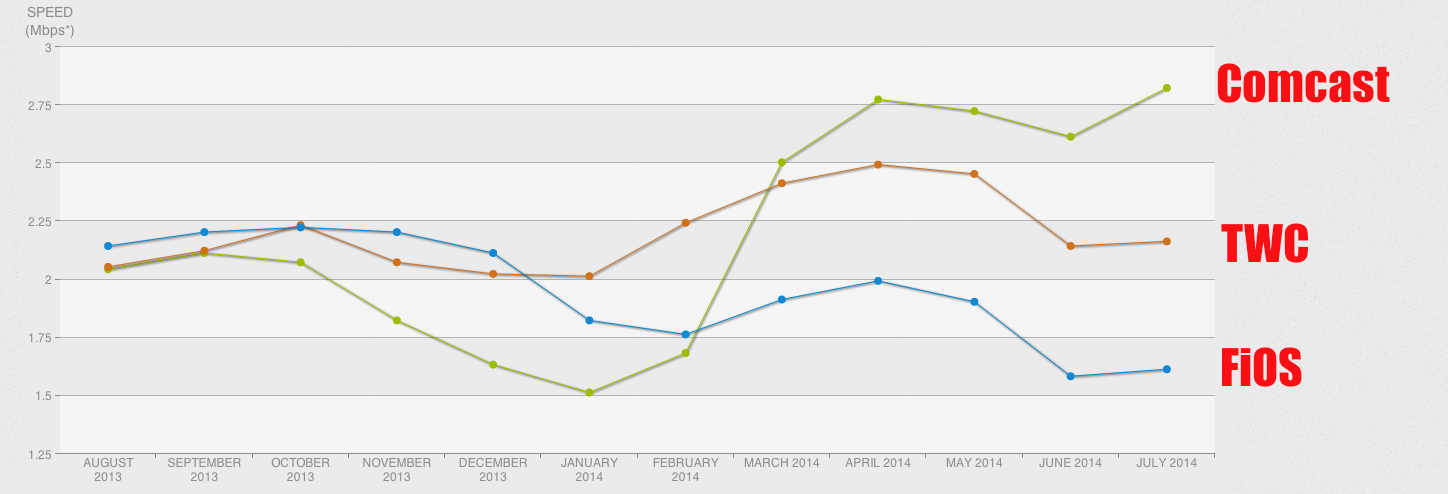
Netflix Is Also Paying A Toll To Time Warner Cable To Improve Speeds To Users
Months after Comcast and Verizon allowed Netflix data to bottleneck so badly that the streaming video company had no other option but to pay for a more direct connection to end-users, Time Warner Cable has confirmed that it too is now collecting a toll from Netflix. [More]
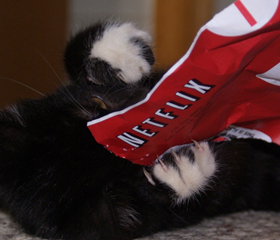
Verizon, Netflix Stepping Up Battle To Blame Each Other For Poor Streaming Service
The heat of high summer is a great time to stay inside and marathon a million hours of TV. But for some Netflix customers who use Verizon as their ISP, the summer streaming season is a slow and choppy dud. Even though the two companies came to a paid peering arrangement earlier this year, service is still going from bad to worse. Netflix blames Verizon, Verizon blames Netflix, and while service is still cooling down, their very public fight is heating up. [More]
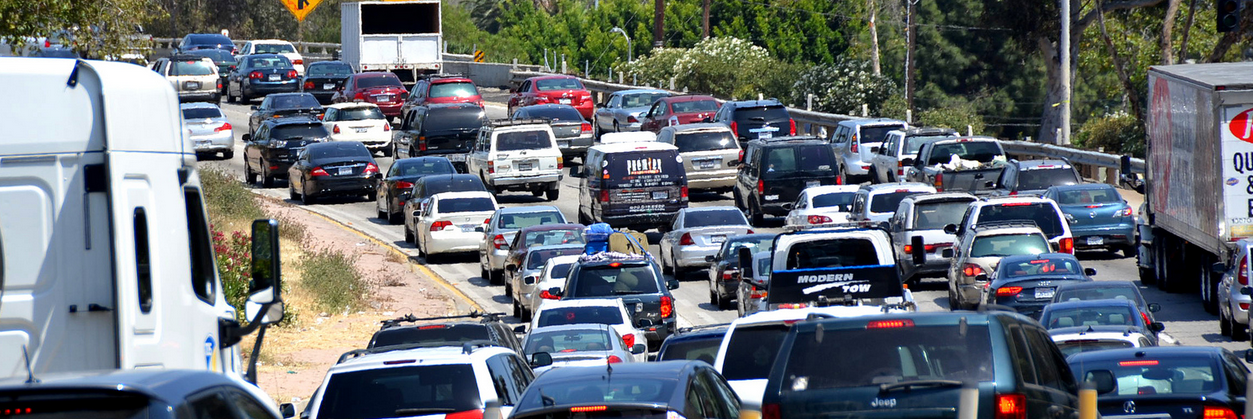
FCC To Look Into Data Bottlenecks And Pay-For-Access Deals With ISPs
The whole point of net neutrality is that Internet Service Providers like Comcast and Verizon shouldn’t be allowed to actively prioritize or degrade the data they help to deliver; it should all be treated equally. But as we’ve seen with Netflix speeds over the last year, ISPs can passively allow downstream data to bottleneck, effectively telling the largest content providers that they have to pay for more direct access. After omitting this latter issue in his controversial net neutrality proposal, FCC Chair Tom Wheeler announced today that it’s time for his commission to consider it. [More]
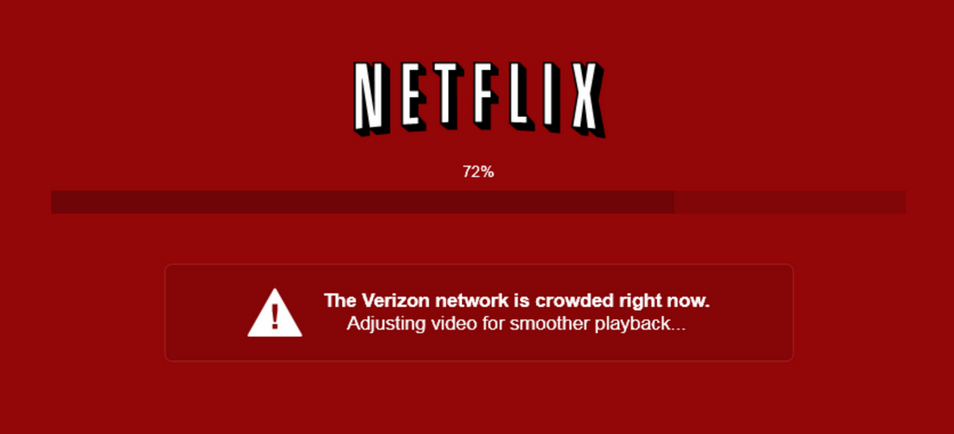
Netflix Tests Passive-Aggressive Buffering Messages To Call Out Slow ISPs
When your streaming video of Charles In Charge comes in pixelated and is regularly interrupted by pauses for buffering, is it the streaming service or your ISP? New messages being tested by Netflix attempt to point the finger straight at the other guy. [More]
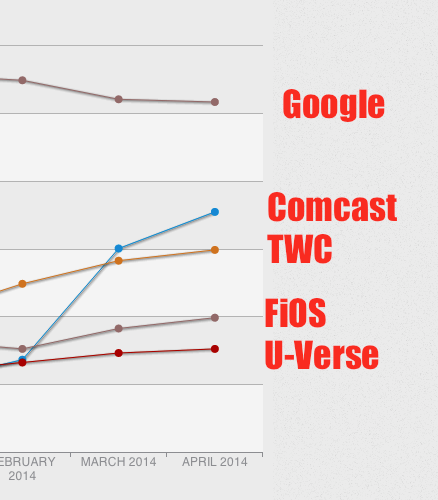
What A Difference A Payoff Makes: Comcast Customers Now Seeing Decent Netflix Speeds
Nearly three months ago, Comcast and Netflix revealed that after months of rapidly degrading data speeds for Netflix subscribers on Comcast’s network, the streaming video company and the country’s largest ISP had reached a deal where Netflix would pay for more direct access to the Comcast network. In the short time since, Comcast has jumped from the rear of the pack to near the front. [More]
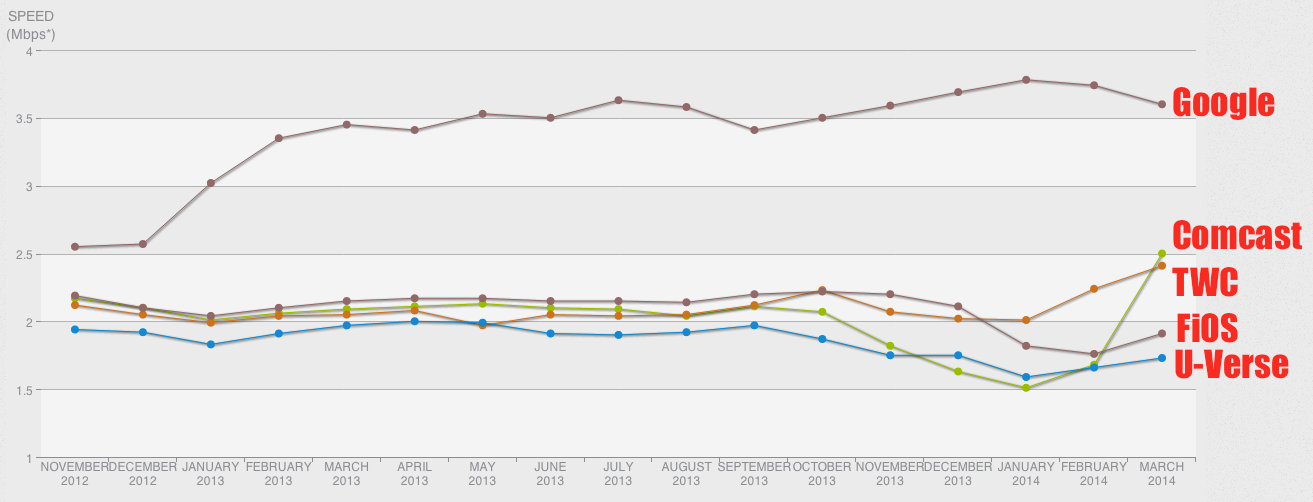
Netflix Will Also Pay Verizon To End Streaming Bottleneck
The months-long game of chicken between Netflix and Verizon has come to an end, with the streaming video company agreeing to pay off the ISP for a more direct connection to its network. For Netflix users with FiOS accounts, it means you will finally be able to watch streamed reruns of Mad Men without having to guess which character you’re looking at, but it continues to demonstrate that ISPs can passive-aggressively compel data-heavy content companies to ante up in order to reach their users. [More]
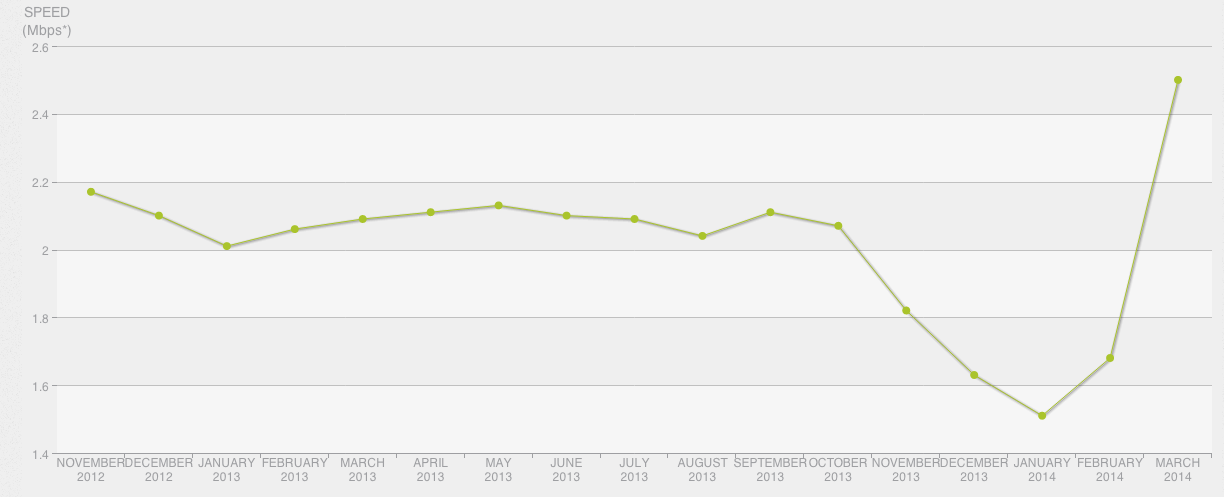
Now That Netflix Is Paying Comcast, Users Finally Get Decent Speeds… But At What Cost?
The good news: Netflix’s deal to pay Comcast for better access to its network is working. The bad news: This will now set a precedent that Internet service providers can hold content companies hostage with complete disregard to net neutrality. [More]
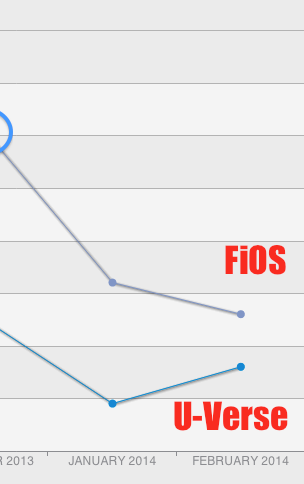
Will Netflix Speeds Improve For Verizon, AT&T Internet Customers Anytime Soon?
Starting in the second half of 2013, Netflix speeds on several major Internet service providers began to sink drastically as the ISPs allowed Netflix downstream traffic to bottleneck, resulting in slow, fitful delivery to consumers who had paid Netflix for the service and the ISPs for broadband access. Earlier this year, Comcast speeds turned up out of their nosedive when the company made a profitable deal with Netflix, but what about everyone else? [More]
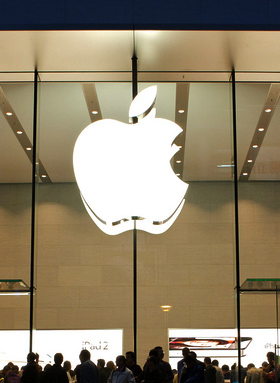
Apple, Comcast Chatting About Streaming TV Service That Would Make End-Run Around Net Neutrality
One of the biggest roadblocks for non-cable TV companies looking to get into the business of offering live TV service over the Internet is that these cable companies often control that “last mile” of Internet service to customers’ homes. Since the FCC’s net neutrality rules have been gutted — and ISPs now realizing they can charge tolls to content providers even if those rules were in place — the end-user might just get a TV screen full of blocky, stuttering visuals and intermittent audio. Apple is reportedly chatting with Comcast about a set-top box that would get around this concern by treating Apple’s stream differently than regular Internet traffic. [More]
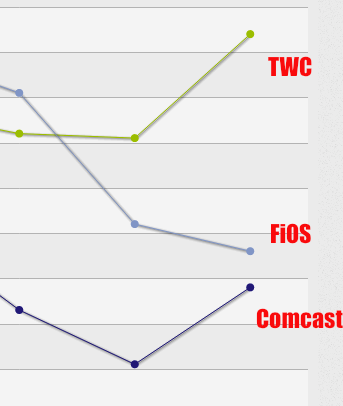
Comcast/TWC Netflix Speeds Improve After Payoff; Verizon Still Hasn’t Bottomed Out
After months of slowed-down data speeds for Netflix users on Comcast and Time Warner Cable’s network, speeds rebounded the very same month that Netflix agreed to pay Comcast money for more direct access to its network. [More]

Netflix Also Talking Deals With AT&T, Verizon
Following Sunday’s announcement that Netflix had agreed to start paying Comcast for a better, more direct connection to the cable company’s broadband network, both AT&T and Verizon said they are working on a similar deal with the streaming video service. [More]


